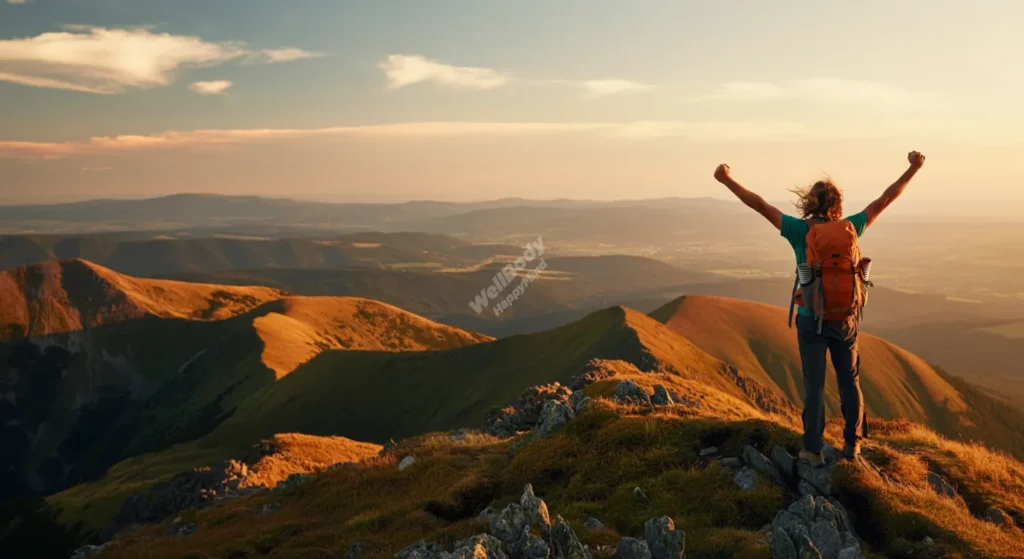Beginner’s Guide: Start Outdoor Activities with Confidence

Have you ever felt inspired by friends’ outdoor adventure photos? Do you wish you could join in but feel unsure? You’re not alone. Many people want to explore nature but feel held back. The good news? Everyone starts as a beginner. With the right approach, you can start your outdoor journey confidently.
This guide will help you begin your outdoor adventure. We’ll cover how to start outdoor activities and provide tips for beginners. Whether you dream of peaceful walks or challenging hikes, we’ve got you covered. Let’s explore why we feel intimidated and how to overcome these feelings.
Why Do We Feel Intimidated?
Understanding our fears is the first step to overcoming them. Let’s look at common reasons why beginners feel intimidated:
- Fear of Judgment
It’s normal to worry about looking inexperienced. You might imagine struggling while others seem expert. Remember, most outdoor enthusiasts welcome newcomers. They’re often happy to share their knowledge.
- Equipment and Cost Concerns
The array of outdoor gear can be overwhelming. It might seem like you need expensive equipment to start. However, many beginner activities need minimal gear. There are often budget-friendly options available.
- Safety Worries
Nature can seem unpredictable and potentially dangerous. It’s common to worry about getting lost or facing unexpected challenges. With proper preparation, you can minimize these risks significantly.
- Lack of Knowledge
Not knowing where to start can be daunting. It’s okay to feel unsure. Everyone starts somewhere, and there are many resources to help you learn.
Starting Small: Your First Steps
Now that we understand the challenges, let’s focus on taking action. Starting outdoor activities doesn’t require a giant leap. It’s better to begin with small, manageable steps.
Here are some ways to get started:
- Choose Beginner-Friendly Activities: Start simple. Try activities that don’t need special skills or equipment.
- Find Local Groups: Look for beginner-friendly meetups or guided tours. These provide structure and support as you start out.
- Get Basic Equipment: You don’t need everything at once. Start with essentials and add gear gradually.
- Learn Safety Basics: Familiarize yourself with simple outdoor safety rules.
Let’s explore each of these points in more detail:
Choose Beginner-Friendly Activities:
Nature walks and easy hikes are great starting points. You can enjoy the outdoors without needing specialized gear. Local parks offer safe, accessible environments to begin your adventure.
Find Local Groups:
Joining a group can make starting out less intimidating. Look for beginner outdoor activity groups in your area. Many offer guided trips and workshops. These are great for learning and meeting like-minded people.
Get Basic Equipment:
Start with comfortable shoes and weather-appropriate clothing. A water bottle is essential. As you progress, you can add more specialized gear. Renting equipment is a good way to try things out before buying.
Learn Safety Basics:
Safety should always come first. Tell someone where you’re going and when you’ll be back. Stay on marked trails. Carry essentials like water and a basic first-aid kit.
Remember, the goal is to build confidence and enjoyment. You don’t need to become an expert overnight. Each small step brings you closer to feeling comfortable outdoors.
Beginner-Friendly Outdoor Activities
Getting started with outdoor activities doesn’t have to be complicated. There are many options suitable for beginners. Let’s explore some popular choices:
| Activity | Required Equipment | Difficulty Level |
|---|---|---|
| Walking/hiking easy trails | Comfortable shoes, water bottle | Low |
| Bird watching | Binoculars, field guide | Low |
| Nature photography | Camera or smartphone | Low to Medium |
| Recreational cycling | Bicycle, helmet | Low to Medium |
| Basic camping | Tent, sleeping bag, cooking supplies | Medium |
Let’s take a closer look at each activity:
Walking/Hiking Easy Trails:
This is an excellent starting point for most beginners. It requires minimal equipment and can be done almost anywhere. Start with short, well-marked trails in local parks. Gradually increase your distance and trail difficulty as you gain confidence.
Bird Watching:
Bird watching is a peaceful way to connect with nature. It sharpens your observation skills and can be done in various settings. Start in your backyard or local park. Learn to identify common birds in your area.
Nature Photography:
You don’t need expensive gear to start. Your smartphone camera works well. Focus on capturing the beauty around you. This activity encourages you to slow down and observe your surroundings closely.
Recreational Cycling:
Cycling is a fun way to explore outdoors. Start on flat, paved trails. As you build stamina, try longer rides or gentle hills. Always wear a helmet and follow traffic rules.
Basic Camping:
Camping lets you fully immerse in nature. Start with car camping at developed campgrounds. These often have amenities like bathrooms and fire pits. Learn basic skills like setting up a tent and cooking outdoors.

Building Confidence Through Preparation
Feeling prepared can boost your confidence significantly. Here are key steps to help you get ready for your outdoor adventures:
- Research and Planning Basics
Before heading out, research your chosen activity and location. Check trail maps, difficulty levels, and recent conditions. Know the area’s rules and regulations. - Weather Considerations
Always check the weather forecast before your trip. Dress in layers to adapt to changing conditions. Be prepared to change plans if the weather turns unfavorable. - Essential Safety Precautions
Safety should be your top priority. Here are some key precautions:
- Tell someone your plans and expected return time
- Carry a basic first-aid kit
- Bring more water and snacks than you think you’ll need
- Charge your phone and consider a portable charger
- Basic Navigation Skills
Learn to read a map and use a compass. Many smartphone apps can help with navigation, but don’t rely solely on technology. Familiarize yourself with trail markers and signs. - Communication Plans
In case of emergencies, know how to call for help. Some areas may not have cell service. Consider carrying a whistle for signaling in remote areas.
Remember, being well-prepared doesn’t mean you need to plan for every possible scenario. Start with these basics and expand your knowledge as you gain experience. The goal is to feel confident and safe while enjoying your outdoor activities.
Finding Your Community
Connecting with others who share your interest in outdoor activities can be incredibly rewarding. It’s a great way to learn, stay motivated, and make new friends. Here are some ways to find your outdoor community:
Local Groups and Meetups:
Many cities have outdoor clubs or hiking groups. These often welcome beginners and organize regular outings. Look for groups on platforms like Meetup or Facebook. Local outdoor gear shops may also host group activities or know of local clubs.
Online Communities:
The internet is a great resource for connecting with fellow outdoor enthusiasts. Join forums or social media groups dedicated to your chosen activities. These platforms allow you to ask questions, share experiences, and get advice from more experienced members.
Taking Classes or Workshops:
Many outdoor organizations offer classes for beginners. These might cover topics like:
- Basic wilderness skills
- Navigation techniques
- Plant and wildlife identification
- Outdoor photography
These classes not only teach valuable skills but also connect you with like-minded individuals.
Finding a Mentor:
A mentor can provide personalized guidance and support. Look for experienced individuals in local groups who are willing to share their knowledge. Many outdoor enthusiasts are happy to help newcomers.
Social Media Resources:
Follow outdoor brands, national parks, and outdoor enthusiasts on platforms like Instagram or YouTube. They often share tips, inspiration, and sometimes organize community events.

Common Mistakes to Avoid
As a beginner, it’s normal to make mistakes. Being aware of common pitfalls can help you avoid them. Here are some mistakes to watch out for:
- Overestimating Abilities: It’s easy to get excited and take on more than you’re ready for. Start with easier activities and gradually increase difficulty.
- Underpreparing: Always research and prepare for your chosen activity. This includes having the right gear and knowing what to expect.
- Ignoring Weather Conditions: Weather can change quickly outdoors. Always check forecasts and be prepared to change plans if needed.
- Skipping Safety Precautions: Never compromise on safety. Follow guidelines and take necessary precautions, even for short or easy trips.
- Going Alone Too Soon: While solo adventures can be rewarding, it’s best to gain experience with others first. This is especially true for more challenging activities.
- Neglecting to Inform Others: Always let someone know your plans, including where you’re going and when you expect to return.
- Relying Too Much on Technology: While apps and GPS are useful, they can fail. Learn basic navigation skills and carry a physical map when appropriate.
- Not Respecting Nature: Follow Leave No Trace principles. Respect wildlife and preserve the natural environment for others to enjoy.
Remember, making mistakes is part of the learning process. The key is to learn from them and continuously improve your outdoor skills and knowledge.
Progressing at Your Own Pace
Developing outdoor skills is a journey, not a race. It’s important to progress at a pace that feels comfortable and enjoyable for you. Here’s how to approach your growth:
Setting Realistic Goals:
Start by setting small, achievable goals. This might be completing a specific trail or learning a new outdoor skill. As you meet these goals, gradually set more challenging ones. Remember, progress looks different for everyone.
Tracking Progress:
Keep a journal of your outdoor activities. Note what you enjoyed, what challenged you, and what you learned. This can help you see your progress over time and identify areas for improvement.
Celebrating Small Wins:
Every step forward is worth celebrating. Did you identify a new bird species? Successfully set up your tent? These small accomplishments build confidence and motivation.
When to Challenge Yourself:
As you gain experience, you’ll start to feel more comfortable. This is a good time to try slightly more challenging activities. Maybe a longer hike or an overnight camping trip. Always ensure you have the necessary skills and equipment before pushing your boundaries.
Signs You’re Ready for More Advanced Activities:
- You consistently feel comfortable and confident in your current activities
- You’ve mastered the basic skills and safety procedures
- You’re eager to learn more advanced techniques
- You have the appropriate gear and know how to use it properly

Conclusion
Starting outdoor activities can open up a world of adventure, health benefits, and connection with nature. Remember, everyone begins as a beginner. The key is to start small, prepare well, and progress at your own pace.
Don’t let fear or inexperience hold you back. The outdoor community is generally welcoming and supportive. Take that first step, whether it’s a short nature walk or joining a local hiking group.
As you embark on your outdoor journey, keep safety in mind, respect the environment, and most importantly, enjoy the experience. The skills you develop and the memories you create will last a lifetime.
We encourage you to take action today. Choose one beginner-friendly activity from this guide and make a plan to try it this week. Your outdoor adventure is waiting!
Remember, the outdoors is for everyone. Start your journey today and discover the joy of outdoor activities!


